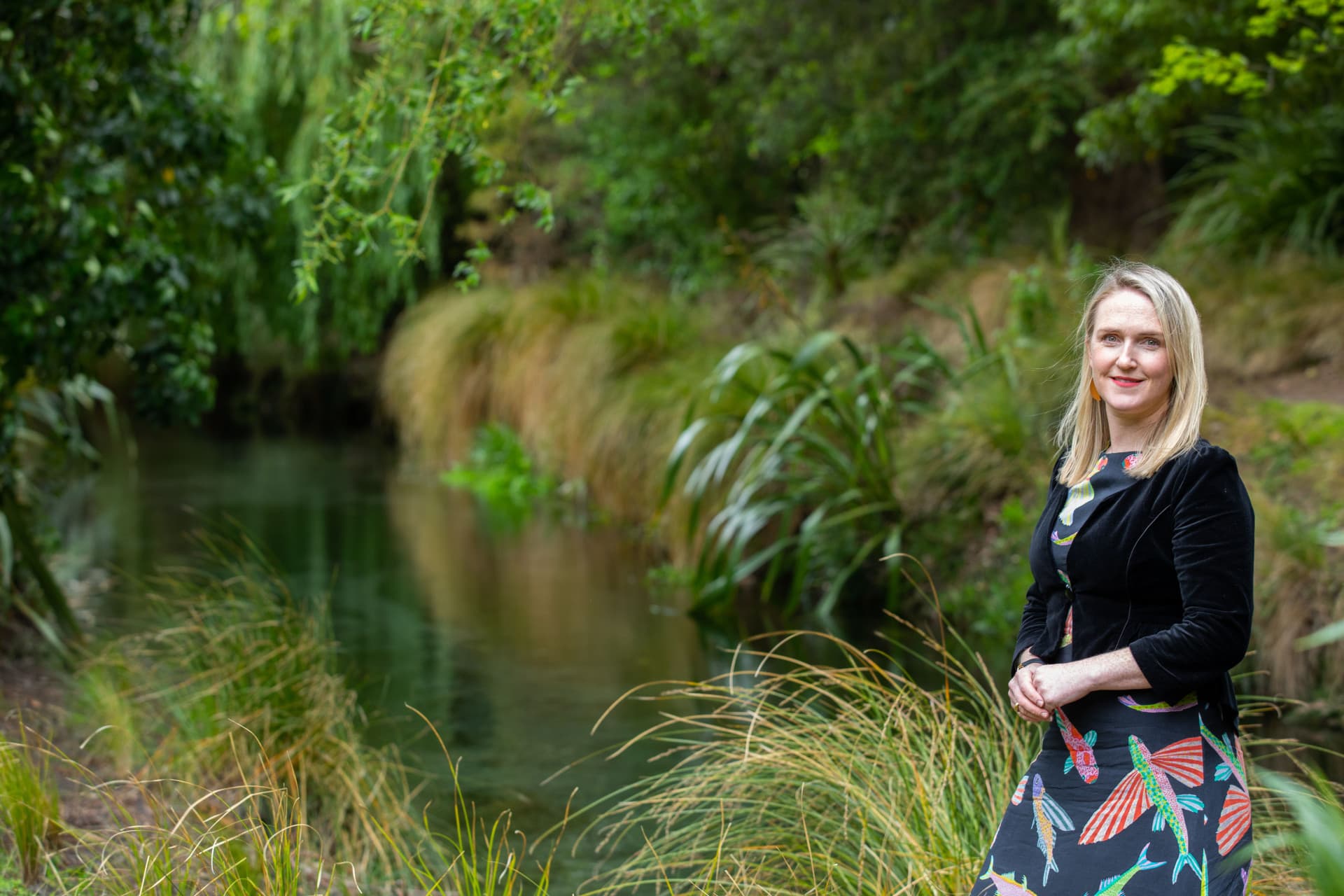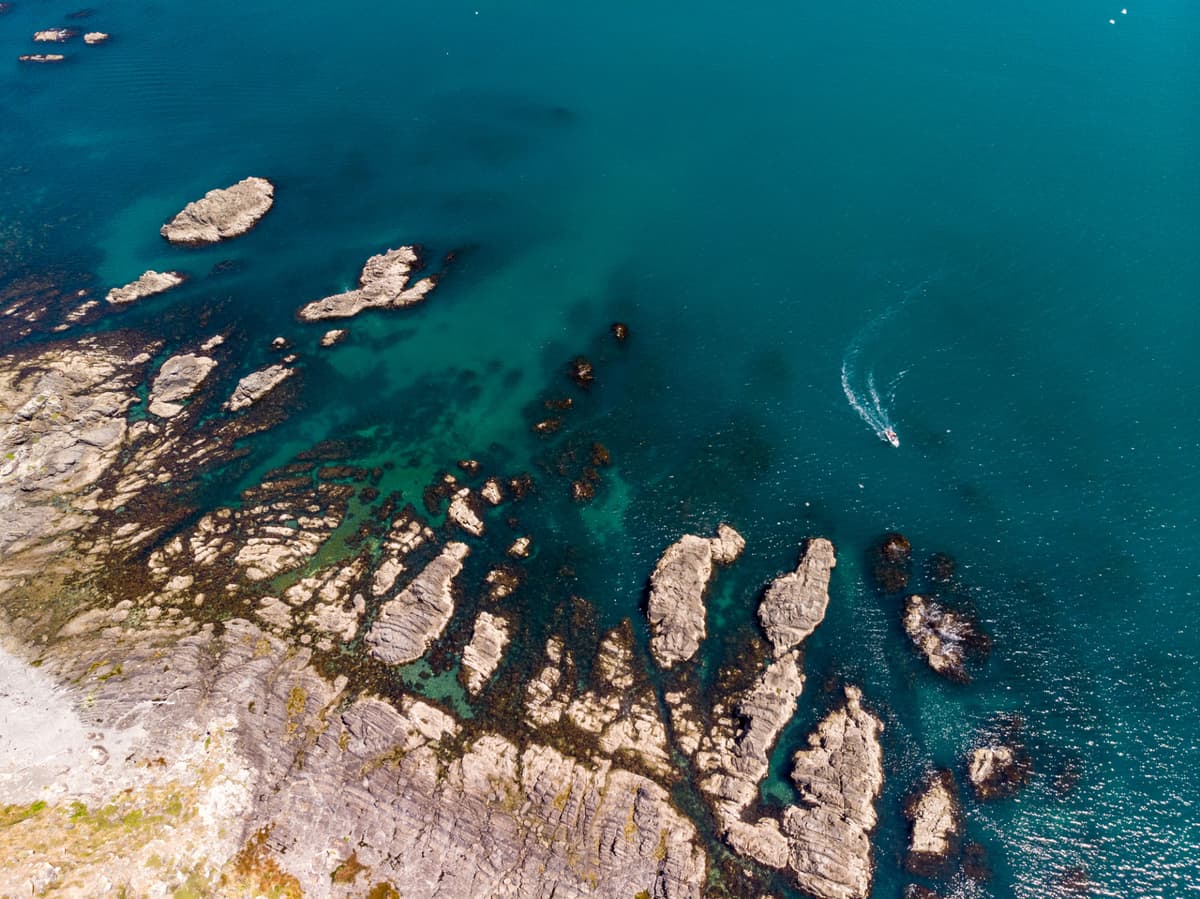

Posted on Tuesday 10 May 2022
Associate Professor Elizabeth Macpherson, an environmental law scholar at the University of Canterbury, is looking at the legal frameworks that manage relationships between people and marine environments, and how they might be used or changed to help protect our moana for future generations.
Speaking from her Christchurch office, Elizabeth Macpherson describes how she sees the current state of our oceans.
“I think there's an overwhelming feeling amongst all New Zealanders, especially people who work in marine management, that the ocean is not what it should be, it perhaps is not what it used to be.
“The relationships between people and watery places are still there. But in many places the moana is not well.”
As co-leader of the Policy and legislation for EBM project Elizabeth is looking at the legislation that surrounds our marine environment, and how we might be able to make it work in a way that reflects ecosystem interconnectedness, holism and dynamism.
This includes working within current legislation and reforms already underway and making recommendations for where things might change. The project team hopes to inform marine policy conversations and influence them where possible, through evidence-based research.
The work is urgent, but Elizabeth believes it’s not too late to change things.
“There are a lot of people who are ready to do things that improve marine use and protection now. Giving more power, for example, to people who are connected to marine areas to manage them is something we need to consider a lot more in policymaking, and in our research for our project,” Elizabeth says.
Elizabeth says the biggest challenge for marine and ecosystem-based management in Aotearoa is the difficulty of pulling together everyone who wants to use and protect the moana so they can coordinate and talk to each other, with a shared vision of a healthy and resilient ocean.
“At the moment, our laws and policies do not do that well. There's a lot of fragmentation and siloed implementation of marine management.
“There’s fisheries regulation over here, and then there's biodiversity conservation over here. Then there’s resource management planning and managing environmental effects over here.
“Often these different laws have different values and objectives and framings and the different institutions that implement them haven’t traditionally worked together.”
The current set-up in our laws and polices doesn’t support the integration needed for an ecosystem-based approach to marine management across government, let alone the partnership with mana whenua, iwi, and hapū required by Te Tiriti o Waitangi, Elizabeth says.
“Te Tiriti partnership in marine management is also not done effectively across government, and that's the first thing we need to do properly.”
Throughout her career Elizabeth has looked at how the environment can be better protected through law and policy, and how to protect and respect Indigenous rights, interests, and sovereignty.
It’s work that has taken her around the world, living and working in Te Whanganui-a-Tara/Wellington, Melbourne, Valparaiso and Santiago in Chile, before settling in Whakaraupō/Lyttleton Harbour where she is connected to the moana every day.
“It's the first thing I see when I wake up in the morning. And the last thing I see from my bedroom when I go to bed at night.
“No matter where I've been there's one ocean that connects all of us. We’re different people. We're from different places and we have different customs and practices and uses of the ocean, but it's all one ocean and we all need to look after it.”
Her connection to the moana goes back to childhood. The rocky seashore was a favourite playground, looking for life in the rockpools.
Now that love of the sea and its life is being passed on to her children.
“My four children and I most nights, especially in the summer, head down to the beach and get that physical connection.”
“Recently I was at the beach with my daughter who’s 20 months old. We were pulling up rocks and looking at what life comes out from under them.
Seeing the wonder and amazement on her face at the life that's there is so special.”
View the entire audiogram playlist
Elizabeth draws inspiration from tikanga Māori and mana whenua for how that relationship with the ocean is framed.
“I think there's a lot we can learn about the importance of that connection to actually restructure some of our laws and some of our policies to support marine relationships better.”
There are some major challenges in aligning the many processes that make up the current legislation and policy around moana management, Elizabeth says.
“If there’s one thing we can do to start off with, it’s to start trying to reach that common vision for the ocean and transform the way we think about the ocean to a more holistic way, a more ecosystem-based way, to recognise the connections and interdependencies between people and the ocean.”
